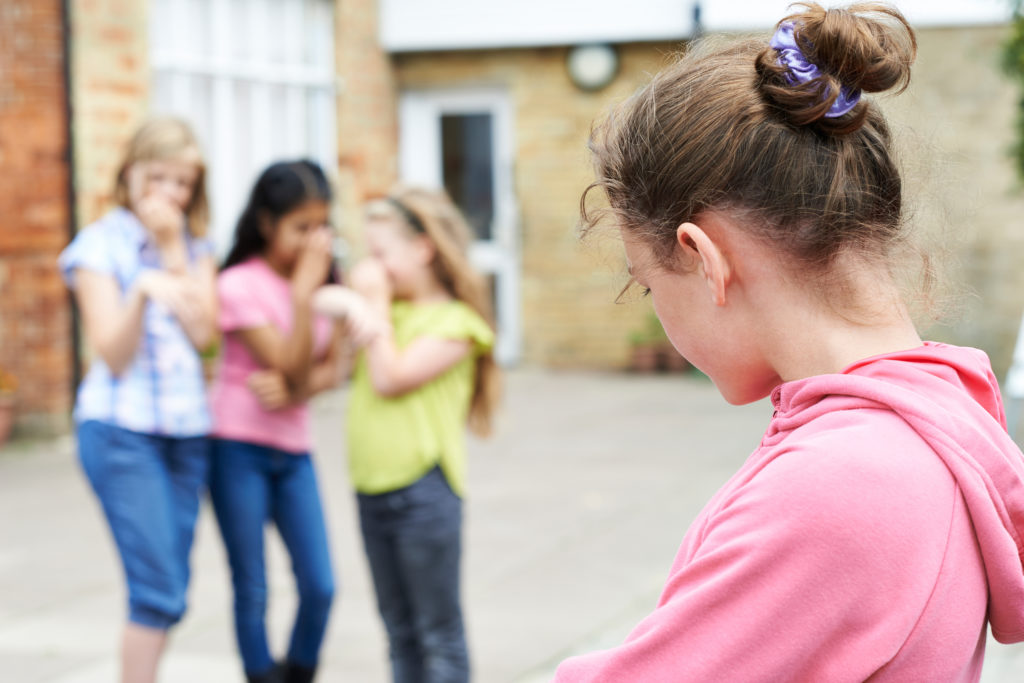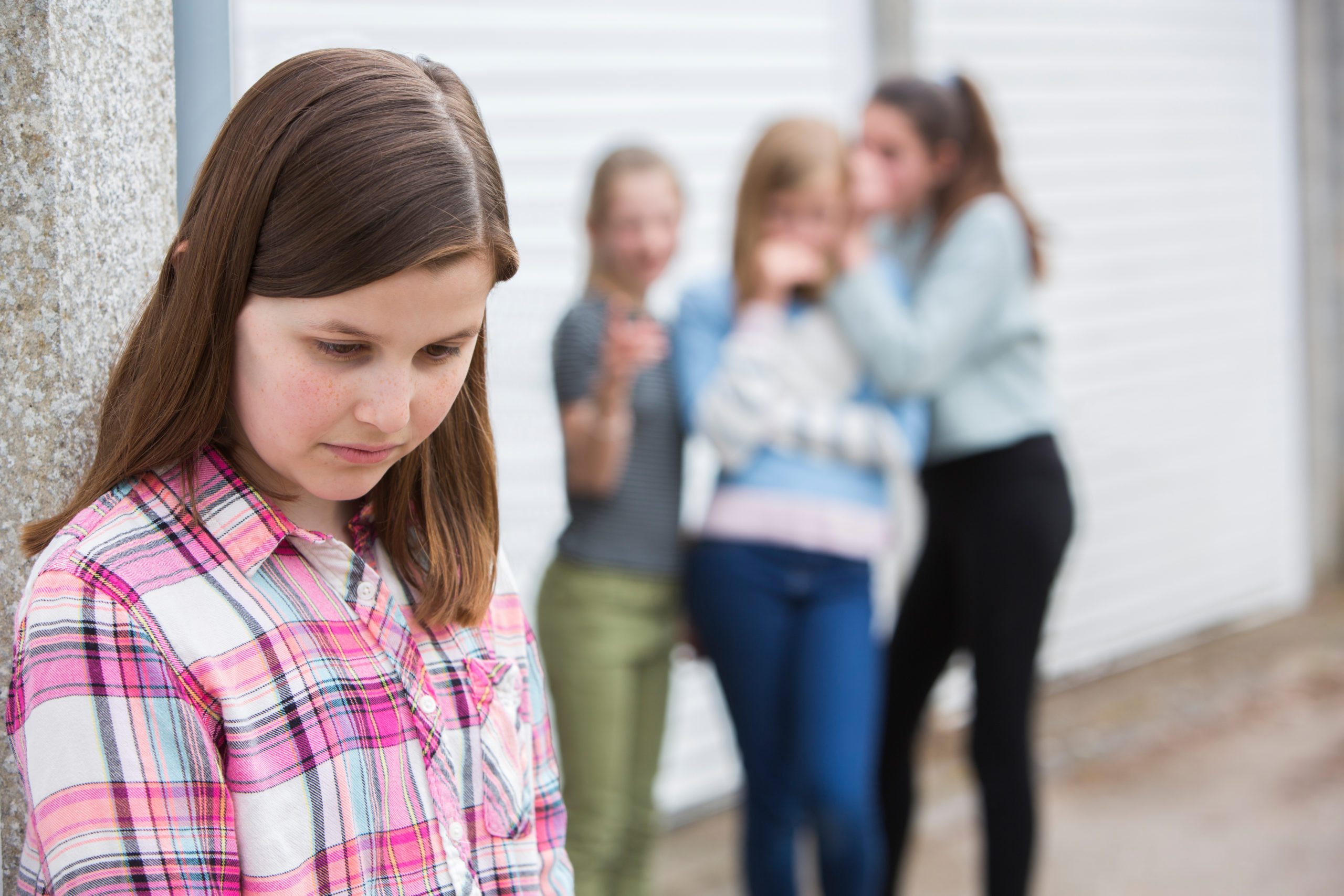As adults, we are once again in a position of witnessing a new generation of children falling into the same patterns of behavior that we endured throughout our own developmental years. As we sit back and observe the inevitable formation of cliques, we remember the plethora of adverse emotions we experienced as we navigated our way through the toxicity of that clique mentality.
Why Do Cliques Form?
For girls especially, it is part of their genetic makeup to seek a group of trusted peers to share common experiences and work as a collective unit. That sense of community has provided safety and security throughout history, and was a means of survival in the most prehistoric of days.
In healthy dynamics, having this peer group is a wonderful addition – being afforded an opportunity to establish trust, empathy and connection with one another helps to create a beautiful foundation.
But because involvement within a social group is so essential to a child’s identity, she will be faced with the need to maintain her place at all costs. For girls who are self assured and confident, they will have the ability to navigate this need through nurturing healthy, positive connections.
On the other hand, this may begin to trigger anxiety and fear in the less secure individuals of the group; prompting a need to find alternative ways to ensure their social standing. For boys, their competitive nature is exhibited more overtly. It is acted upon in public, talked about, laughed about, and fed upon. From a biological perspective, males are innately more comfortable standing out as the best, competing with their peers for that status and relishing in the accolades that this entails.
For females however, ensuring that prestige within the group must be done in a more covert manner. Why? Being that a female’s entire sense of identity practically revolves around her ability to maintain close and personal relationships, she would never do anything to outwardly threaten her place in the group. So instead, she subconsciously chooses another course of action, otherwise referred to as “relational aggression.”

What Is Relational Aggression?
Relational aggression is a type of bullying in which harm is caused by damaging someone’s relationship or social status. It is intended to harm others through deliberate manipulation. Many times, the group focuses their attention on one individual; someone that may trigger within them, their own insecurities and jealousies.
In working to damage the reputation and integrity of this one individual, the other members of the group experience a momentary reprieve from their own fears of rejection and isolation. They take this opportunity to band together – solidifying their own place in the group while attention is diverted elsewhere.
Some common forms of relational aggression are:
- Exclusion from activities
- Gossip / spreading rumors
- Belittling (followed by “just joking”)
- Withdrawing attention / silent treatment
- Conditional friendship
As a parent, it can be difficult to identify when this dynamic is occurring. Since it is done in such a subtle and manipulative manner, it is almost impossible to confront specific moments of maltreatment. However, there are certain things that can be done to help mitigate the presence of such toxic connections.
- Look for signs that your child may be experiencing relational aggression. This can include the following:
Anxious / nervousness behaviors
Talking about sitting alone at school and activities
Appearing withdrawn / depressed
Acting out in class or at home
Negative shift in academic performance
Overly fixated on phone / social media
- Empower your child
Help teach your child to recognize the red flags associated with unhealthy relationships. Assist them in identifying aspects of friendships that bring them joy, and the ones that leave them feeling more frustrated and alone. Guide them to seek out and celebrate dynamics that elicit a more positive impact on their esteem and confidence.
- Avoid Catastrophizing
As a parent it can feel warranted to want to seek revenge, speak poorly about or release adverse emotion onto someone who is mistreating your child. But remember that your child will be observing you and the way you respond. It will help her to understand, interpret and process the severity of all that is occurring. Remain calm and proactive. Negative experiences will continue to happen throughout your daughter’s life. We cannot avoid that reality. However, we can teach her how to appropriately react and move forward.
- Teach Empathy
At times it can be enlightening for a child to gain awareness of the reasons that someone may be behaving negatively; reasons that most often have nothing to do with them. For instance, helping your child to understand that someone’s maltreatment of them is an indication of that person’s own pain and dissatisfaction within themselves and their own lives. Through this process, your child will gain a deeper, more mature understanding of the dynamic and how to navigate it.
- Model Behavior
As parents, it falls on us to model appropriate social behavior. Talk positively about the accomplishments of others, celebrate their wins, support them in their losses. Avoid gossip and mirror healthy ways to distance from those who actively engage in negative conversations about others. Your ability to portray inclusivity and kindness will help establish a foundation for your child’s understanding of healthy friendships.
- Create opportunities
By affording your child new opportunities to meet and connect with others outside of school, you are helping them find and appreciate balance. There will be less attention given to one specific group of individuals and more chances to grow with, and connect to, a plethora of others.
- Recognize that there will be times when your own child may be the ‘mean girl’
There will inevitably be times that your daughter engages in these behaviors herself. No matter how wonderful you would like to believe she is, there are times in her life when she may feel less confident about herself and jealous of those around her. She may feel the urge to attack others on this level to help boost her esteem. By keeping a vigilant eye on their interactions, you can help guide your child to recognize moments of vulnerability and the tendency to project those insecurities onto others.
The friendship dynamic amongst females is complex, and the residual impact of these interactions can be lasting. However, if we continue to help our children gain a deeper sense of awareness, empathy and self-advocacy, they may become more inclined to gravitate towards healthy, positive relationships; ones that leave them feeling more connected and empowered.




